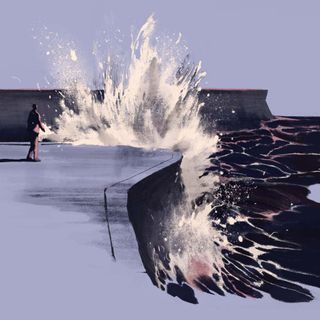March 2, 20206 min read, 1139 words
Published: March 2, 2020 | 6 min read, 1139 words
By Senior reporterPublished December 3, 2019Among the millions of species that inhabit our planet, Homo sapiens is one of the most resilient. Since we first evolved some 200,000 years ago in Africa, we’ve created habitats for ourselves in every corner of the world: from the ...
CRITIC REVIEWS
There don't seem to be any reviews yet.
PUBLIC REVIEWS
Correlation w/o Causation
March 17, 2020
No facts are presented that suggest climate change is anthropomorphic, only opinions, speculation, and anecdotes are supplied. The author bases a discussion on a conclusion that is still being debated and provides nothing useful in context of that discussion.
March 17, 2020
Great Context
March 3, 2020
A pretty good article that gives some novel suggestions for combating climate change. The author compares climate change to a burning house and says we must resist our urge to run back into the burning building for our valuables or limit our scope to simply rebuilding the house as it was. It continues to explain how humans are an adaptive species and that climate change will force us to change, but in ways that might require retreat. I appreciate this kind of higher ground strategy being discussed in a serious and even optimistic way.
March 3, 2020
Well Sourced
March 3, 2020
Makes a critical point for those who believe in the dangers of climate change -- that it is less about how we react to dangers in real time, more important to build long term solutions that prevent the individual disasters from happening in the first place. A key distinction as our media keeps us moving from one disaster to the next without examining the underlying causes with scientific vigor. This article includes many references to other examples that highlight the key talking points well & in factually relevant (not emotionally leading) terms.
March 3, 2020
